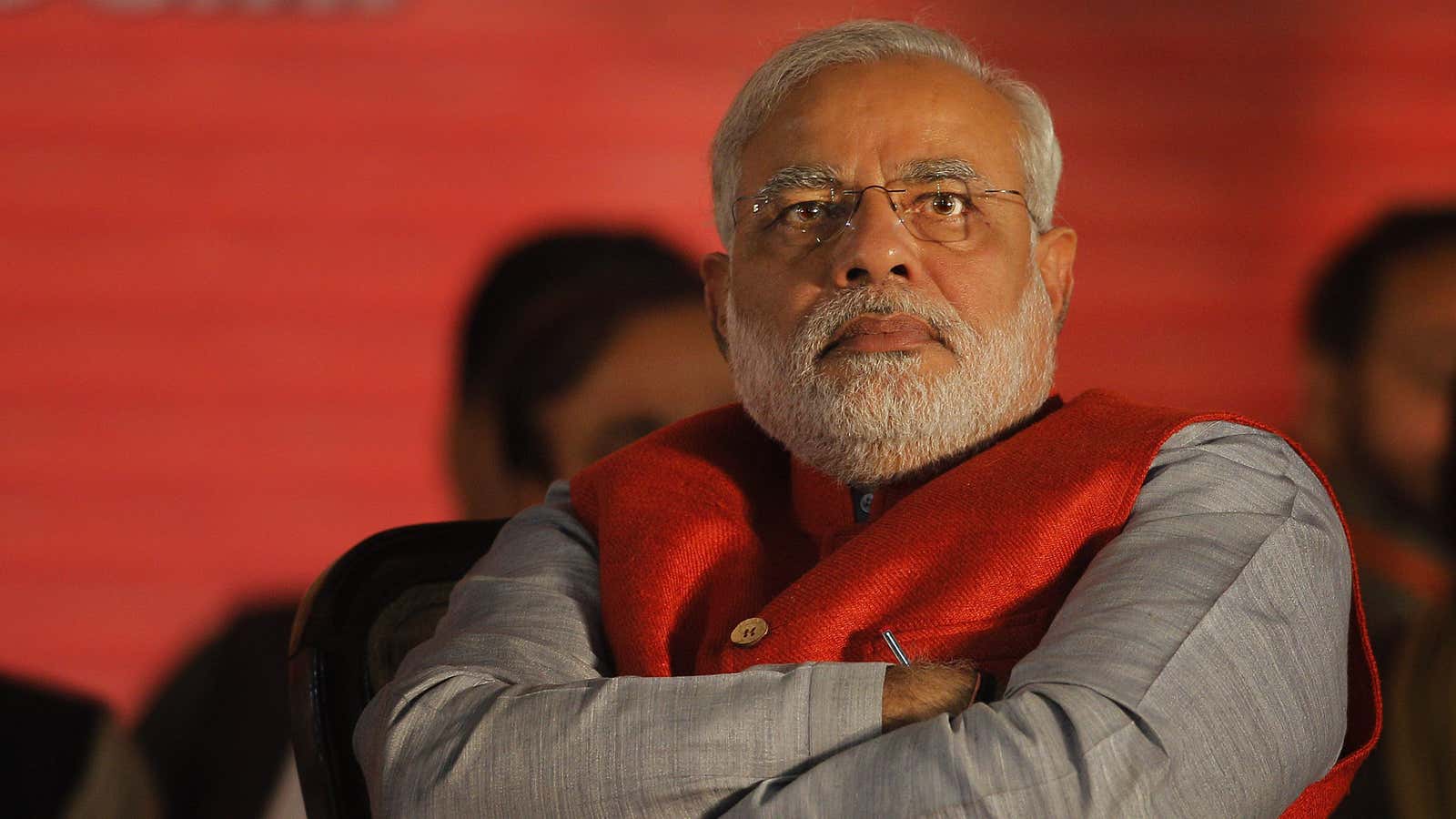Narendra Modi is hardly a man of a few words. So when the Indian prime minister remains silent on a wave of sectarian discord sweeping the country, people notice.
In September, for instance, a 50-year-old Muslim man was lynched on suspicion of storing beef in his refrigerator. (Cows are sacred to India’s Hindu majority.) A month earlier, MM Kalburgi, an Indian scholar and rationalist, was assassinated in his own house.
Modi has done almost nothing to dispel fears that such violence will continue. He and his party, the Hindu-nationalist BJP, have either simply ignored critics, or branded them unpatriotic citizens out to malign India’s image. From a right-leaning government, that’s not entirely unexpected when liberal-minded artists, academics and scientists revolt, as they have. But now, India’s business community, which solidly backed Modi’s electoral campaign, is growing increasingly concerned.
Moody’s Analytics (not the same as the ratings agency) sent out a warning last week: “Modi must keep his members in check or risk losing domestic and global credibility.” The unrest over religious intolerance is diluting the government’s focus on economic reforms, and will give India’s opposition parties more ammunition to disrupt parliament once it reconvenes later this year. A hamstrung parliament has already slowed down Modi’s reform momentum; key bills are stuck in limbo. India’s lumbering economy urgently needs these reforms, and the delays are starting to make India’s businesses uncomfortable.
Unperturbed, Modi and his lieutenants are sticking to their script: “India is doing better than when we took office 17 months ago.” But it’s not good enough, compared either to rising expectations, or to their own promises. Unless Modi changes tack quickly, his election slogan of “minimum government, maximum governance” risks degenerating into “mediocre government, maximum nuisance.”
This was published as part of the Quartz Weekend Brief. Sign up for our email newsletters here, tailored for morning delivery in Asia, Europe & Africa, and the Americas.
